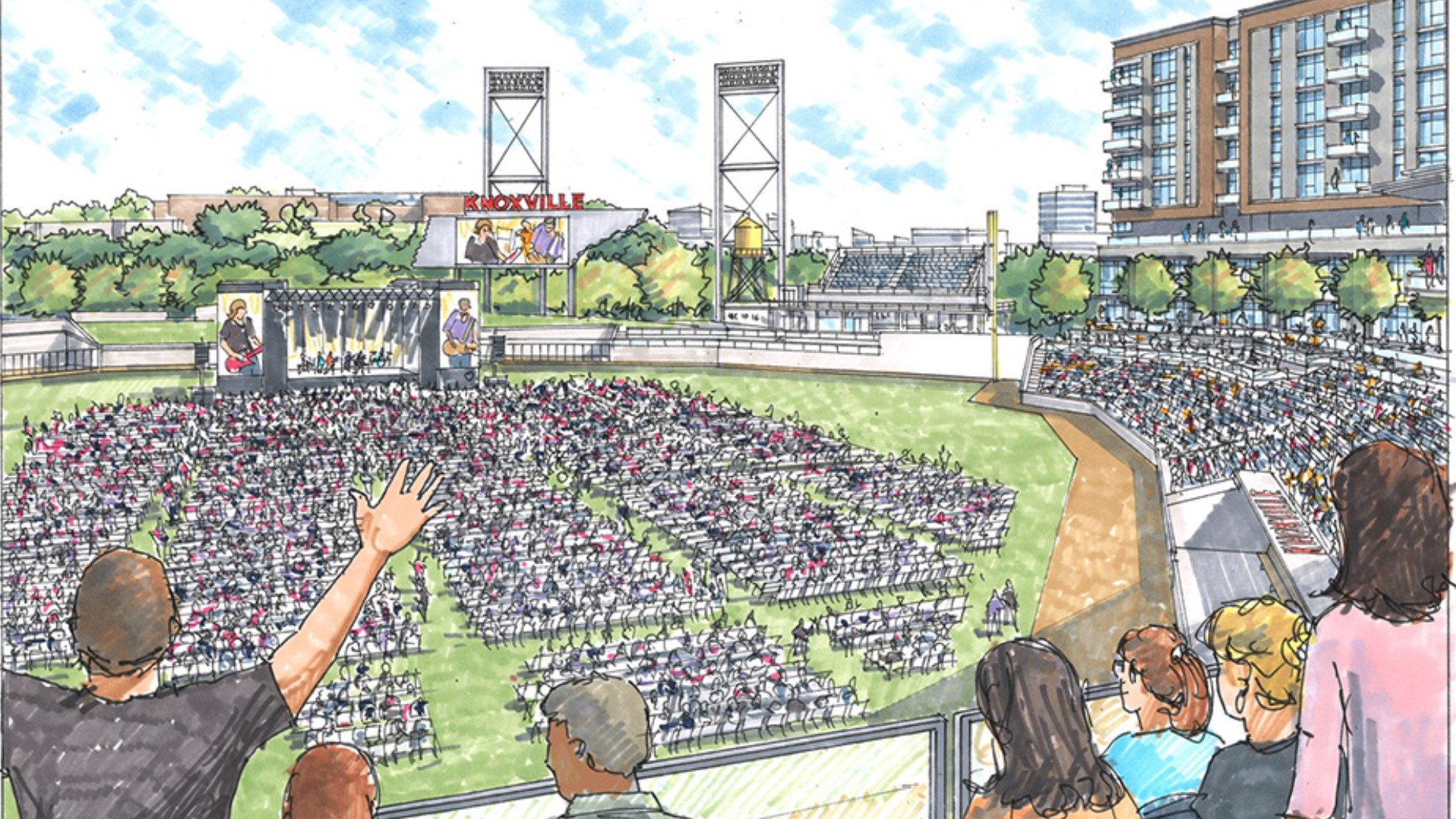KNOXVILLE, Tenn. — The ad hoc panel overseeing construction of a downtown Knoxville stadium will take another key step May 9 toward realization of the $114 million project.
Members of the Knoxville Knox County Sports Authority are set to approve a resolution at a special meeting then that will clear the way for sale of $65 million in bonds to help pay for the 7,000-seat stadium off Jackson Avenue.
Bond counsel Mark Mamantov told the group Tuesday morning he hopes to go to market May 16.
After months of meetings and discussions about the arcane details of financing and building a stadium, May 9 represents a key moment in the project timeline. Once bonds are sold, the project is formally and officially underway from the investors' point of view.
The sports authority on Tuesday blessed calling the special meeting, which is set to be conducted at Knoxville's Community Development Corp. headquarters on Broadway.
The goal is to be ready in time for Tennessee Smokies baseball in spring 2025. Site work is already underway.
Minor league team owner Randy Boyd, an entrepreneur and president of the University of Tennessee System, wants to move the Smokies from their 20-year home in Sevier County to the new stadium just east of James White Parkway in an expanding Old City.
He's also part of a private development group with separate plans to build offices, condos and commercial space around the stadium.
In addition to the baseball team, Knoxville's professional soccer team is expected to play there. Concerts and community gatherings also are envisioned for the venue.
Mamantov reminded sports authority members Tuesday how stadium construction will be funded.
The state has contributed $13.5 million, which is drawing interest. Boyd also agreed to put in $6 million, and the team will pay $1 million annually in a lease for the 70 home games.
Boyd assembled land for the site and will donate it to the public.
Sales taxes collected from people buying food and merchandise inside the stadium will also be set aside to cover debt service on the bonds.
Mamantov said of all the revenue streams that will be used to help cover the long-term debt, sale tax revenues are probably the most "speculative."
A financing TIF district also has been created for the neighborhood surrounding the stadium. Some money generated within the district could also go to repay Boyd because he's agreed to take on a loan of up to $20 million to help support the stadium project.
The city and county also are committed to make up any funding gap on routine debt service payments. That amounts to an estimated $800,000 for each government each year. The county plans to cover its share by using room tax collections.
The city and county both say property taxes won't be used for stadium construction.

